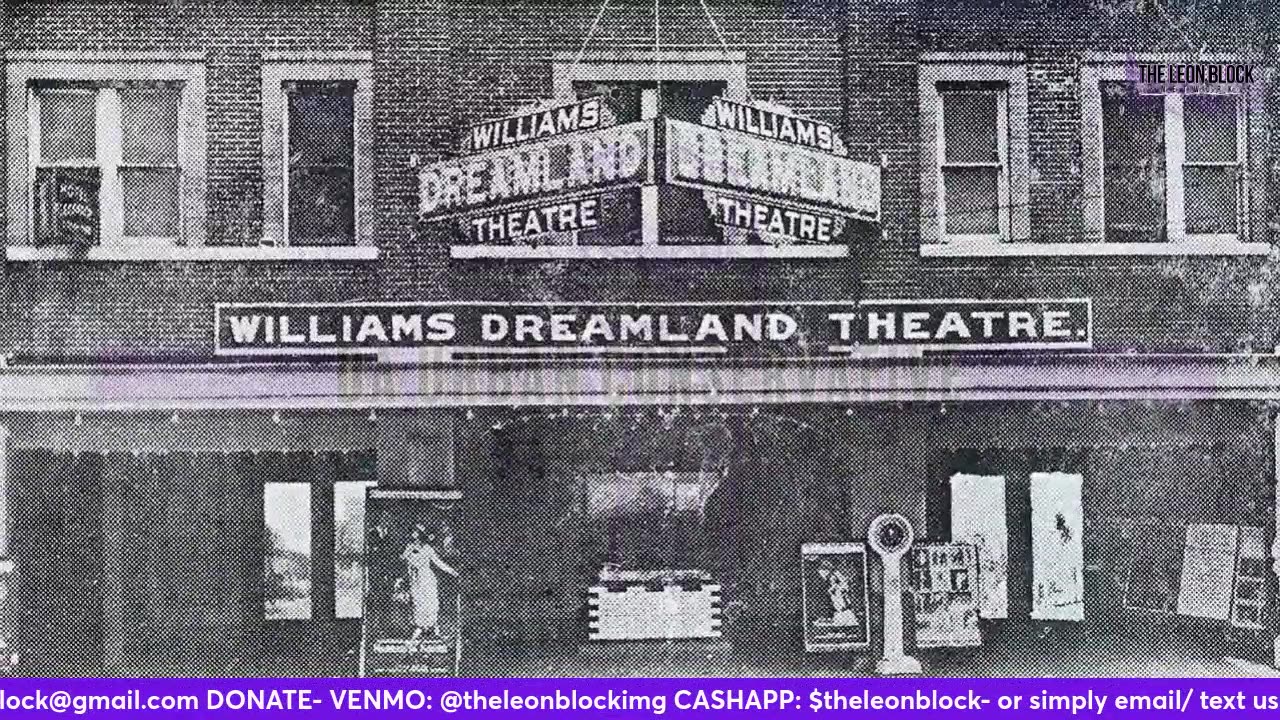Premium Only Content

DAC-Whispers of Redemption: Unearthing the Veiled Tales of Struggle
n this riveting podcast episode, we plunge into the crucible of America's history, unearthing haunting echoes of racial violence that have left an indelible mark on our nation's journey. Transport yourself back to 1906, where the Atlanta Race Massacre unfolded—a tempest of racial hatred shattering lives and dreams in the heart of the United States. Venture further into the Louisiana fields of 1887, where the Thibodaux massacre saw 10,000 workers rising against oppressive sugar cane plantations, their voices echoing defiance across parishes.
Fast forward to the scorching days of July 1910, and the Slocum Massacre stains Texan history with a torrent of violence. Move forward to the haunting specter of the Elaine massacre in 1919, set in the rural landscapes of Phillips County, Arkansas, as African Americans organized against the chains of peonage and tenant farming. It became a brutal testament to the price paid for challenging the established order.
The "Red Summer" of 1919 reveals an eruption of racial violence across 26 U.S. cities post-World War I, where returning American servicemen, veterans of a global conflict, found themselves thrust into a new battle for racial equality on home soil. As millions of veterans returned to a transformed social landscape, racial tensions boiled over, defining an era of aspirations and harsh realities.
Yet, let us not only remember these tragic episodes but draw strength from the resilience of those who stood against the storm. Through understanding our shared past, we unearth the seeds of change, inspiring a deeper commitment to justice, equality, and the ongoing struggle for a more equitable future.
Shifting gears to the 1960s, our podcast explores a transformative period reshaping perceptions of birth control within the African American community. From President Eisenhower's hands-off stance in the late 1950s to President Johnson's controversial establishment of federal funding for birth control in 1964, we unravel a tapestry of controversy that unfolded in just five years.
The 1960s, marked by social upheaval and heightened racial awareness, reveal well-grounded fears deeply rooted in historical injustices. Explore the twisted evolution of controlling black fertility from slavery to the post-Civil War era, where sterilization abuse against African American women reached horrifying peaks in the 1950s and 1960s.
Amid suspicions of a covert plan to suppress black population growth, the Pill becomes a symbol of political opposition within the black power movement. Influential figures like comedian and activist Dick Gregory highlight the historical irony of oppression evolving from being forced to the back of the bus to facing attempts to limit procreation. The 1967 Black Power Conference saw the passage of an anti-birth control resolution, equating birth control with black genocide.
By the summer of 1969, tensions reached a boiling point, manifesting in threats of violence against a Planned Parenthood office in the African American neighborhood of Homewood-Brushton in Pittsburgh. A vocal faction vehemently opposed the clinic, with threats of firebombs and riots leading to its temporary closure.
Caught in the crossfire of political ideologies and personal needs were African American women. Despite suspicions about mostly white-run clinics, their desire to control fertility prevailed over racial politics. Women like Tone Cade expressed the dilemma, emphasizing the need for care for themselves and their children amid calls to abandon birth control.
Pittsburgh emerged as a focal point of this controversy, where approximately 200 women rallied together at a town council meeting to save their clinic. The Planned Parenthood office, symbolizing both triumph and resilience, was eventually reopened, marking a pivotal moment in the ongoing dialogue about reproductive rights and racial justice.
Join us as we navigate through this complex historical terrain, reflecting on the courage of those who stood at the intersection of politics, race, and personal autonomy. In this educational and uplifting episode, we unravel the layers of history, acknowledging the challenges faced and celebrating the resilience that emerged from a tumultuous era.
-
 1:00:22
1:00:22
Sarah Westall
2 hours agoLoss of Confidence in the Medical System, Real Facts and Data w/ Dr. Michael Schwartz
9772 -
 55:08
55:08
LFA TV
1 day agoThe Cause of ‘Natural’ Disasters | TRUMPET DAILY 1.10.25 7pm
3.43K3 -
 LIVE
LIVE
2 MIKES LIVE
2 hours ago2 MIKES LIVE #165 Open Mike Friday with Special Surprise Guests!
174 watching -
 1:01:18
1:01:18
PMG
1 day ago $0.62 earnedIs the UK Grooming Issue Alive in America & How Are Those DEI Fire Policies Working in CA?
9.48K3 -
 2:01:49
2:01:49
Revenge of the Cis
5 hours agoEpisode 1428: Who Did This?!
23.8K4 -
 36:00
36:00
Candace Show Podcast
5 hours agoI Got A Legal Threat From A Sitting President… | Candace Ep 130
73K302 -
 1:02:24
1:02:24
In The Litter Box w/ Jewels & Catturd
1 day agoNewscum Busted | In the Litter Box w/ Jewels & Catturd – Ep. 717 – 1/10/2025
89K104 -
 1:54:12
1:54:12
Twins Pod
9 hours agoCANCELED Hollywood Star EXPOSES The Entertainment Industry! - Twins Pod - Episode 47 - Owen Benjamin
90.6K27 -
 2:26:45
2:26:45
Mally_Mouse
4 hours agoLet's Play!! - Stardew Valley pt. 18
38.1K2 -
 1:47:39
1:47:39
The Quartering
7 hours agoTrump Sentenced, LA Fires Sleeper Cells, Arson Arrested, TikTok Ban Imminent, Piers Morgan Destroyed
79.4K46